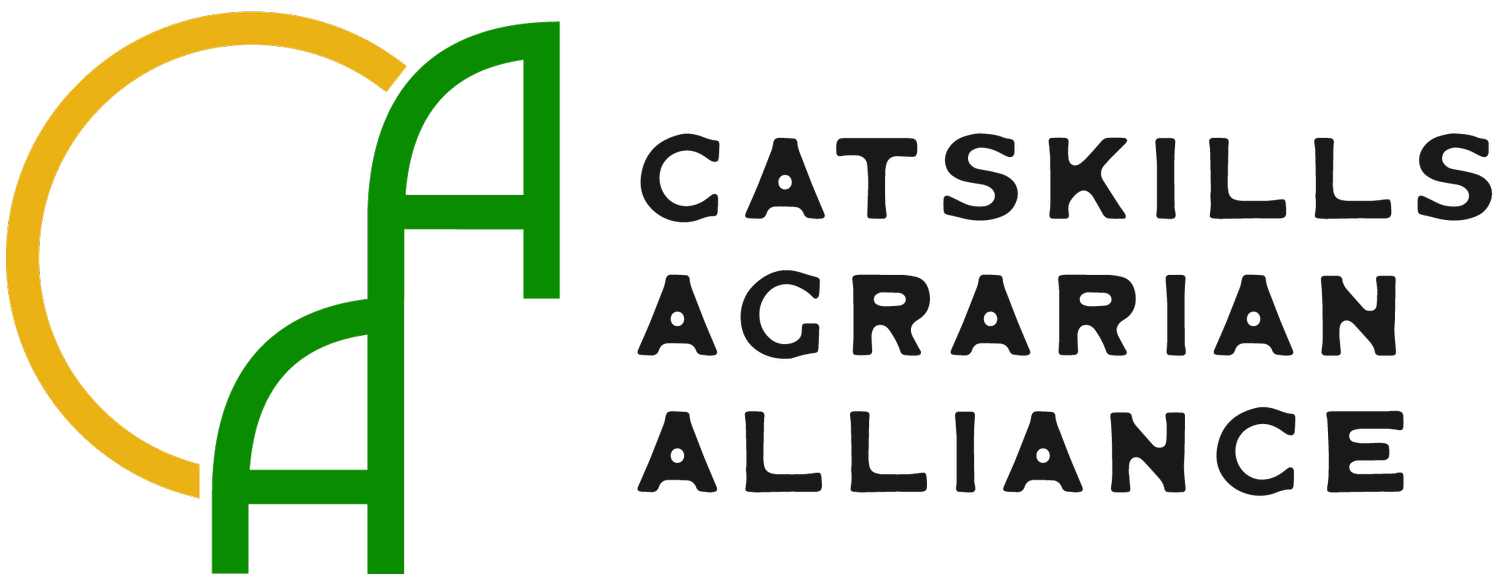Our Mission
Catskills Agrarian Alliance models food sovereignty in our region by…
establishing and managing local agricultural initiatives that help protect and promote the right of all people to healthy, culturally-appropriate food produced through ecologically sound and sustainable methods. Our grassroots, participatory approach supports our right to define our own food systems.

Our Vision
We imagine a worldview in which Earth is not just an extractable resource, food is not a commodity, and partnership replaces exploitation.
We see ourselves in a diversely populated Catskills’ farmland of the not-too-distant future, thriving ecologically and economically under the stewardship of a new generation of farmers growing nutrient-dense food made available to all the people within our foodshed.
Our Values
Healthy Food Access for All
CAA believes that everybody should have access to healthy, local, affordable, culturally-appropriate, sustainably-produced food, regardless of socioeconomic or zip code.
Inclusion and Empowerment
CAA uplifts and centers marginalized communities within our work, with a particular attention to Queer, Trans, Black, Indigenous, and Communities of Color to offset historic inequality perpetuated by the USDA and funded by the Farm Bill.
Living Wages
CAA strives to forge funding strategies that recognize and honor the complex knowledge, undying creativity, and immense physical endurance of agricultural workers.
Reciprocal Stewardship
CAA supports the development of a reciprocal relationship with our ecology: small farms, ecological diversity, intact forests, and holistic management practices.
Real Climate Solutions
Our commitment to participatory decision making; stewardship of the land; and management of our own local, networked and therefore resilient supply chains underscore our commitment to creating practical, adaptive solutions to our current climate reality.

